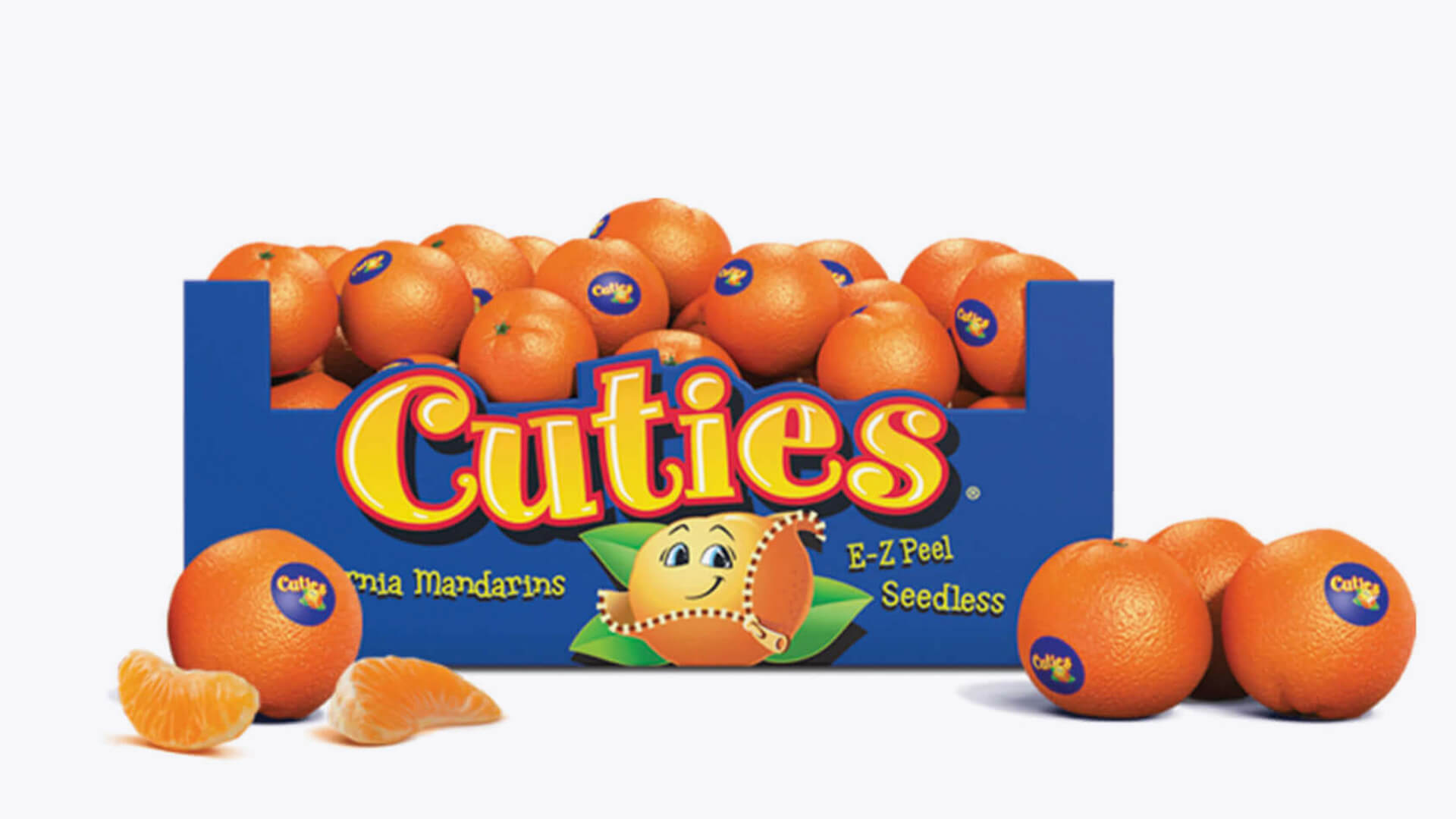Simple but clever ideas have made America great. Now a small seedless fruit has become an emblem of marketing in our era. Will your local supermarket ever be the same again?
By Miriam Jordan – From a hillock in the San Joaquin Valley, Berne Evans III recently surveyed a citrus grove that stretches as far as the eye can see. “It’s the largest clementine planting in the world,” he said, smiling.
The groves make Mr. Evans the king of the Cuties, a brand of seedless, sweet and easy-to-peel mandarin that is storming the nation’s fruit aisles and changing eating habits that span generations. The navel orange, after reigning supreme for decades, has a challenger.
The rise of Cuties heralds the arrival of big-money marketing in a tradition-steeped comer of American industry. Techniques once reserved for promoting consumer products have now made their way into the produce section. Just as people have long asked for a “Kleenex” instead of a tissue, they are starting to ask for “Cuties” when they mean mandarins.
“I can’t think of any other produce that has done this,” says John Ball of San Diego branding firm MiresBall. It’s “a name that is the thing.”
Cuties reflect a defining reality of the American consumer experience: Convenience sells. It’s a simple idea, applied in an unexpected place in the case of Cuties. Few people may have looked at the traditional orange and considered it a candidate for the classic American “new and improved” treatment.
But part of the Cuties marketing message trumpets the fact that children find it easier to peel. “We are a very impatient nation,” says Jerry Della Femina, of Della Femina Advertising in New York. “We have always led the way on, ‘Isn’t this the easiest way to do it?'”
Cuties fit the long-standing pattern of transformative marketing insights that have shaped the U.S. consumer-product landscape. The automatic washing machine changed the nature of the American household. The remote control upended TV advertising. The advent of pre-peeled baby carrots in a bag redefined cubicle snacking at office parks coast to coast.
It’s too early, of course, to elevate the seedless mandarin to a place in this pantheon. But in the meantime, the small, glossy, deep-orange fruit is, acre for acre, the most profitable citrus in America. Across California’s citrus belt, farmers are ripping out orange, lemon and grapefruit trees to switch to mandarins.
Mr. Evans, 67 years old, built his empire with Stewart and Lynda Resnick, the Beverly Hills billionaire marketers of Fiji Water and Porn Wonderful pomegranate juice. Eight years ago they launched the Cuties brand.
Mr. Evans and his group spent considerable sums to try to capture shoppers’ attention. That strategy is spawning a marketing battle as rivals trumpet their own seedless, easy-to-peel brands: Darling Clementines, Delite, Clem’NTina’s, Bee Sweet.
Now, the Cuties brain trust is showing some cracks. To fend off the new competition and keep their tangerines on top, the group is pouring money into ‘marketing at the Resnicks’ behest. In the latest season it spent $20 million on a national campaign to promote Cuties.
The rising costs are a wedge issue. “We’re having an argument,” Mr. Evans says. “Are Cuties well-known just because of advertising? My personal view is it’s a damn good piece of fruit.”
Meantime, Mr. Evans irked the Resnicks by selling a smaller version of the fruit that his company registered under the trademark “Baby Cuties.” The Resnicks believe it undermined the Cuties brand’s premium image, according to Mr. Evans and other growers.
Shortly after, Paramount Citrus, the Resnicks’ company and a unit of their closely held Roll Global LLC, sued Mr. Evans in Los Angeles federal court over use of the Cuties name on a new juice line. The issue is now in private arbitration.
The Resnicks declined to be interviewed. A RollGlobal spokesman said the company wouldn’t discuss the business relationship and issues in “ongoing arbitration.”
Cuties have their origin in a 1990 freeze that badly damaged California’s citrus harvest. Mr. Evans, a stockbroker-turned-farmer and already into tomatoes, oranges and kiwi at the time, caught wind of the fact that Spanish clementines were selling well on the East Coast. “Supermarket chains told me, ‘If you grow ’em, they’ll sell,” he recalls.
Continue reading The Big War Over a Small Fruit, published in The Wall Street Journal.
